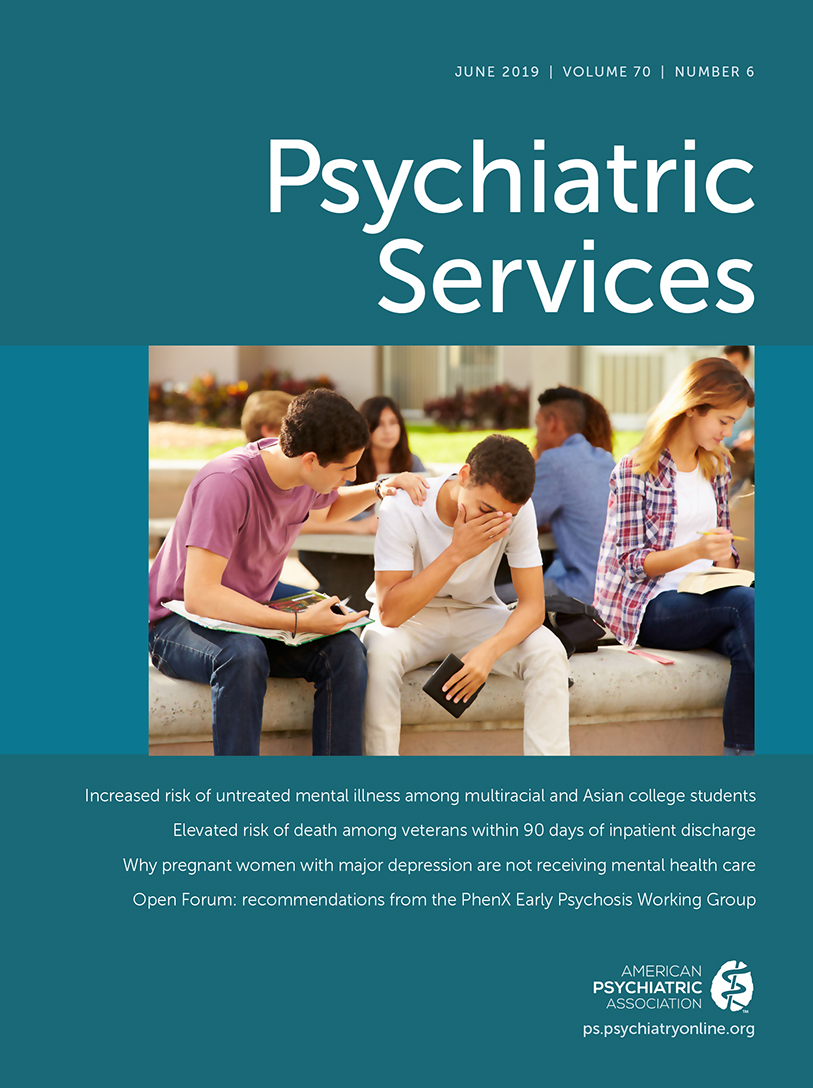Effect of Mobile Health on In-person Service Use Among People With Serious Mental Illness
Abstract
Objective:
This study examined whether mobile health (mHealth) affects the use of in-person services among people with serious mental illness.
Methods:
This randomized comparative effectiveness trial evaluated minutes of service use among 163 participants for 3 months before, during, and after exposure to mHealth or clinic-based care.
Results:
mHealth and clinic-based care participants used fewer services during the intervention (9% and 14%, respectively) and follow-up (2% and 12%) periods than during the preintervention phase. During treatment, mHealth treatment responders (participants who experienced recovery gains and maintained them at follow-up) reduced service use more than nonresponders (12% vs. 10%). Postintervention, service use by mHealth treatment responders continued to drop (an additional 11%), whereas service use by mHealth nonresponders increased by 8%.
Conclusions:
mHealth and clinic-based illness management interventions may reduce the need for other in-person services among people with serious mental illness, particularly among mHealth users who experience sustained recovery.



